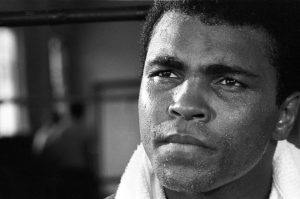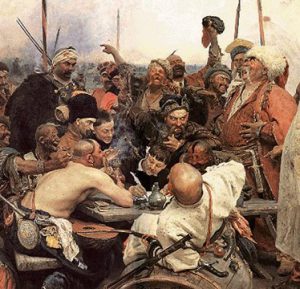 In tribute to the great Douglas Adams.
In tribute to the great Douglas Adams.
And while we’re at it:
“It comes from a very ancient democracy, you see…”
“You mean, it comes from a world of lizards?”
“No,” said Ford, who by this time was a little more rational and coherent than he had been, having finally had the coffee forced down him, “nothing so simple. Nothing anything like so straightforward. On its world, the people are people. The leaders are lizards. The people hate the lizards and the lizards rule the people.”
“Odd,” said Arthur, “I thought you said it was a democracy.”
“I did,” said Ford. “It is.”
“So,” said Arthur, hoping he wasn’t sounding ridiculously obtuse, “why don’t people get rid of the lizards?”
“It honestly doesn’t occur to them,” said Ford. “They’ve all got the vote, so they all pretty much assume that the government they’ve voted in more or less approximates to the government they want.”
“You mean they actually vote for the lizards?”
“Oh yes,” said Ford with a shrug, “of course.”
“But,” said Arthur, going for the big one again, “why?”
“Because if they didn’t vote for a lizard,” said Ford, “the wrong lizard might get in. Got any gin?”
“What?”
“I said,” said Ford, with an increasing air of urgency creeping into his voice, “have you got any gin?”
“I’ll look. Tell me about the lizards.”
Ford shrugged again.
“Some people say that the lizards are the best thing that ever happenned to them,” he said. “They’re completely wrong of course, completely and utterly wrong, but someone’s got to say it.”
“But that’s terrible,” said Arthur.
“Listen, bud,” said Ford, “if I had one Altairian dollar for every time I heard one bit of the Universe look at another bit of the Universe and say ‘That’s terrible’ I wouldn’t be sitting here like a lemon looking for a gin.”
No specific gin or lizard endorsement.

 “That’s right, Robin.”
“That’s right, Robin.” Like smartphones teach us to be dumb – to not know things, to not be able to find our way except by using the device – we are also learning how to forget the past. Or how to remember it inaccurately, disconnected from the forks in the road where our path darkened and we lost something irretrievable, something we did not make nor deserve but that came from us and birthed us, was us, the best and the worst, that pushed us in the right direction because we were scared to go on our own until we learned we could pull ourselves there if we could just join enough hands.
Like smartphones teach us to be dumb – to not know things, to not be able to find our way except by using the device – we are also learning how to forget the past. Or how to remember it inaccurately, disconnected from the forks in the road where our path darkened and we lost something irretrievable, something we did not make nor deserve but that came from us and birthed us, was us, the best and the worst, that pushed us in the right direction because we were scared to go on our own until we learned we could pull ourselves there if we could just join enough hands. Interesting op-ed on a
Interesting op-ed on a  So… who ever thought The Cossacks Work for the Czar would become a literal trope? If you are keeping score at home, and really should be, the
So… who ever thought The Cossacks Work for the Czar would become a literal trope? If you are keeping score at home, and really should be, the  For a long time, I’ve thought that living in Republican-dominated states, especially in the South, was a form of being on the front lines – of racism, of anti-union sentiment, of hostility to immigrants and civil rights broadly construed. Even the lesser evils of being among people who feel over-taxed, persecuted for their (in every sense dominant) religious beliefs, sub-par infrastructure (no mass transit and the promotion of personal automobiles as priority transportation concerns) and general discomfort with the world as more people deservedly take their places in it, you are confronted with this it all up close. You know what it’s like and grow accustomed to fear and self-loathing as it leaks out everywhere among the shiny automobiles and neat, though increasingly sad [and appropriately named] subdivisions. After not too long, you begin to sense among the dominant political persuasion an uneasiness that borders on paranoia. The lack of confidence about the way things are going, despite the fact that they are in charge, is unmistakable and results in all kinds of frantic attempts
For a long time, I’ve thought that living in Republican-dominated states, especially in the South, was a form of being on the front lines – of racism, of anti-union sentiment, of hostility to immigrants and civil rights broadly construed. Even the lesser evils of being among people who feel over-taxed, persecuted for their (in every sense dominant) religious beliefs, sub-par infrastructure (no mass transit and the promotion of personal automobiles as priority transportation concerns) and general discomfort with the world as more people deservedly take their places in it, you are confronted with this it all up close. You know what it’s like and grow accustomed to fear and self-loathing as it leaks out everywhere among the shiny automobiles and neat, though increasingly sad [and appropriately named] subdivisions. After not too long, you begin to sense among the dominant political persuasion an uneasiness that borders on paranoia. The lack of confidence about the way things are going, despite the fact that they are in charge, is unmistakable and results in all kinds of frantic attempts  There exists a misunderstood or mischaracterized mantra, if we will, that you cannot really succeed without the possibility of failure. And it would seem to make sense, though it is often enough forgotten how much trouble the very rich have over-compensating for the fact that they don’t feel legitimate in their own eyes. (There is a very good novel idea in there somewhere, and you get to it before me, good on you). There is also a specific case of sometimes, if green means that you win even if you lose, how were you
There exists a misunderstood or mischaracterized mantra, if we will, that you cannot really succeed without the possibility of failure. And it would seem to make sense, though it is often enough forgotten how much trouble the very rich have over-compensating for the fact that they don’t feel legitimate in their own eyes. (There is a very good novel idea in there somewhere, and you get to it before me, good on you). There is also a specific case of sometimes, if green means that you win even if you lose, how were you  How long will this last? How much can you take? Do you have a line that won’t be crossed? Do you have a budget for direct action?
How long will this last? How much can you take? Do you have a line that won’t be crossed? Do you have a budget for direct action? First of all Happy New Year and apologies for going blank for a while. We were hacked! And I’m not naming
First of all Happy New Year and apologies for going blank for a while. We were hacked! And I’m not naming